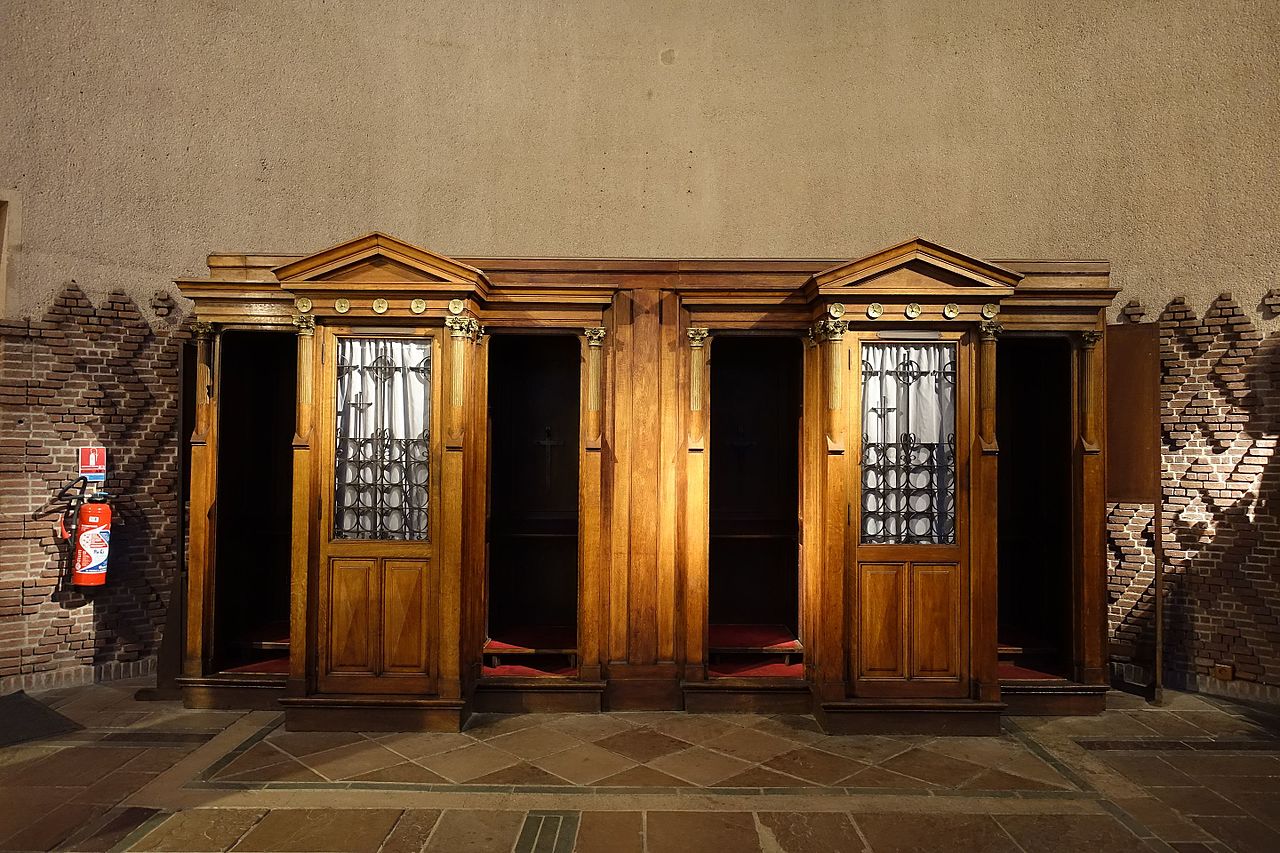The disgrace of French Catholicism
The findings of the recent inquiry into paedophilia in the French Catholic Church exceeded the worst expectations. But despite the shock and anger among Catholics and the wider public, the deep-seated conservatism within the Church is resisting the recommended reforms.
The report on Sexual Violence in the Catholic Church: France 1950–2020, released on 5 October 2021 by the Independent Commission on Sexual Abuse in the Catholic Church (CIASE), had an explosive impact both inside and outside the Church. This was primarily because of its estimate of the number of underage victims of sexual abuse committed by priests, deacons, monks, and others in positions of responsibility: 216,000 over fifty years, rising to 330,000 if we include minors abused by lay people with links to the Church (in Catholic schools, parishes, associations, leisure activities, and so on). There were, of course, victims who were adults when they were abused, but the commission did not provide an estimate of how many.
The number of paedophile priests is put at between 2,900 and 3,200 – amounting to around 3 per cent of all priests in France over the period studied. Eighty per cent of the victims were young boys aged between ten and thirteen; this contrasts with the profile of sexual abuse victims in general, 75 per cent of whom are girls of a slightly older age.
The crimes were at their height between 1950 and 1970. They dipped between 1970 and 1990 – an inconvenient fact for those such as Pope Benedict XVI who see in the civil unrest of May 1968 the origins of present-day sexual degeneracy, both clerical and lay. After 1990, paedophilia in the Catholic Church became more prevalent again, and continues to take place to this day.
These numbers – which exceeded the very worst forecasts – caused intense shock when the report was publicly submitted. There is no reason to contest them: the methods used to calculate and interpret them are clearly explained in the report.
The quality of the work could serve as a model in other areas where sexual abuse is being investigated. Particularly notable was the importance accorded to the victims’ direct testimony, spoken aloud during the hearings or provided in written form. The stories were devastating with regard both to the events recounted and their consequences (for some, the destruction of an entire life), and had a profound impact on commission members, by their own admission.
How could this moral shipwreck have occurred?
The report offers historical, sociological and psychological explanations, some of them specific to the Church itself, others related to social changes that the Church either neglected or held in contempt, such as children’s rights in the 1980s. Key here are ‘systemic’ reasons, above all the law of silence that protects the aggressor and not the victim, who is non-existent as a person in canon law, concerned solely with keeping the affair inside the Church.
Then there is the sacralization of the celibate priest, which gives him a sacrosanct status as far as victims and their families are concerned. The idealistic, even other-worldly official discourse about the body and sexual relations turns a blind eye to the darker aspects of sexuality, and tends to foster perverse visions and sordid practices. The Church’s teachings equalize sins: ‘impure thoughts’, adolescent masturbation and sexual abuse are all equally serious, can all be forgiven in the same way, and, as a result, are all equally trivial.

Confessional at Eglise Sainte-Odile church in Paris, France. Photo by Guilhelm Vellut via Wikimedia Commons.
Will the report be the final blow for the Catholic Church, already greatly weakened and divided as France grows ever more secularized? No. A core of believers will remain, and those who leave will be people who were already distant or only weakly attached to the Church (though there will be many of them). But beyond the predictable internal reckoning, the social opprobrium will be considerable, and the image of the Church will remain tarnished for a long time.
It is also not clear how the Church will be able carry out the forty-five recommendations included in the CIASE report ‘to try to overcome the trauma caused by sexual violence and the shroud of silence covering it’. One of the main recommendations, to compensate victims without regard to the usual limitation of thirty years in French civil law, seems to have run into significant difficulties already.
The commission requested that the compensation be funded from the assets of the perpetrators and institutions belonging to the Church, excluding ‘any appeal for donations from the faithful, as this would not be consistent with the recognition of the Church’s responsibility as an institution’. However, the Church has claimed to have insufficient means to provide such compensation. This has sparked an argument between Catholics who refuse to contribute towards compensation for victims and those who would be willing to donate out of solidarity with the victims and as members of the Church.
Other recommendations are problematic for Catholic tradition, for example reviewing the seal of confession; reforming canon law by giving a place to the victims as well as to the offending clerics; clarifying obscure diocesan procedures for those who lodge complaints; including lay people in ordinary government and decisions that are not specific to a bishop’s strictly religious ‘power of order’; reconsidering how candidates to the priesthood are recruited and trained; scrutinizing the harmful effects of the Church’s sexual morality; and putting an end to the subordination of women. The latter is an especially contentious point, given that the Church remains fundamentally patriarchal in its operation, mode of power, and culture.
Encouraging silence
Among Catholics, sadness has quickly turned to anger, even fury, toward bishops and their representative body, the Bishops’ Conference of France. This has been accused of having fostered paedophilia and even of encouraging it by keeping silent about priests known to be guilty.
These violent reactions have brought to light the obstacles to a root and branch institutional reform of the Church, which is locked into its definition by theological principles and multiple other ‘sacred’ tenets. Moreover, the Church is founded on a universality that transcends national Churches. In France, as elsewhere, the Bishops’ Conference has very little latitude to undertake reforms.
If, for example, the French bishops were to hand in their collective resignation, as demanded by a petition, Pope Francis would need to accept this for it to be effective. He would very probably refuse, just as he did when the Chilean bishops offered to resign a few years ago. Significant changes to the role of lay people, and especially women, in the Church would be dependent on the approval of Rome, which would be unlikely. And so goes for practically all the CIASE’s recommendations.
It is important to avoid making errors in the game that is being played with the French government. After the president of the Bishops’ Conference, Éric de Moulins-Beaufort, declared that the seal of confession was ‘stronger’ than the laws of the Republic, he was summoned by the minister of the interior, Gérald Darmanin, who reminded him that crimes admitted in the confessional had to be reported to the justice system.
If the archbishop of Reims had read the report more closely, he would have noticed that this was one of the CIASE’s recommendations: that paedophile acts cease to be treated as lapses of chastity and start being treated as criminal offences.
Some conservative Catholics have defended the absolute secrecy of confession, because ‘without secrecy, no words would be possible and therefore no salvation would be possible’. They argue that it is up to the priest to convince those who have committed paedophile acts to hand themselves in.
For the victims, however, is it not preferable for crimes to be confessed before the public prosecutor rather than in the confessional? And would confessors really regret having the duty of convincing removed from them? (Not that hearing such crimes in the confessional is an everyday occurrence for priests – far from it.)
The Catholic ‘sacrament’ of confession is rooted in ancient, even foundational religious practices that are now in conflict with contemporary legislation and sensitivities – the examples of circumcision and animal sacrifice come to mind.
Can one be optimistic amidst the ruins? Pope Francis has made some attempts at reforms of varying degrees of boldness, which have all ended up in tatters because of the deep-seated opposition of conservative factions within the Church. Many Catholics – and even non-Catholics – have infinite hope, however. Will they have to settle for this?

Published in cooperation with CAIRN International Edition, translated and edited by Cadenza Academic Translations.
Published 3 January 2022
Original in French
Translated by
Cadenza Academic Translations
First published by Esprit 11/2021 (French version); Eurozine (English version)
Contributed by Esprit © Jean-Louis Schlegel / Esprit / Eurozine
PDF/PRINTPublished in
In collaboration with
Newsletter
Subscribe to know what’s worth thinking about.
Related Articles

The chronicler of the life and ideas of Lucien Goldmann recalls what drew him to the writings of the Romanian-French Marxist at the tail-end of the countercultural revolution; how he gradually reconstructed Goldmann’s intellectual biography throughout the next two decades; and how after 1989 he was able to piece together the missing parts of his subject’s early life.

Republic transformed
Politics and media in France
The successful campaign of the Republican Front against the mainstreaming of the far-right proved that France’s ultra-conservative media, though on the ascendant, are still not hegemonic.





